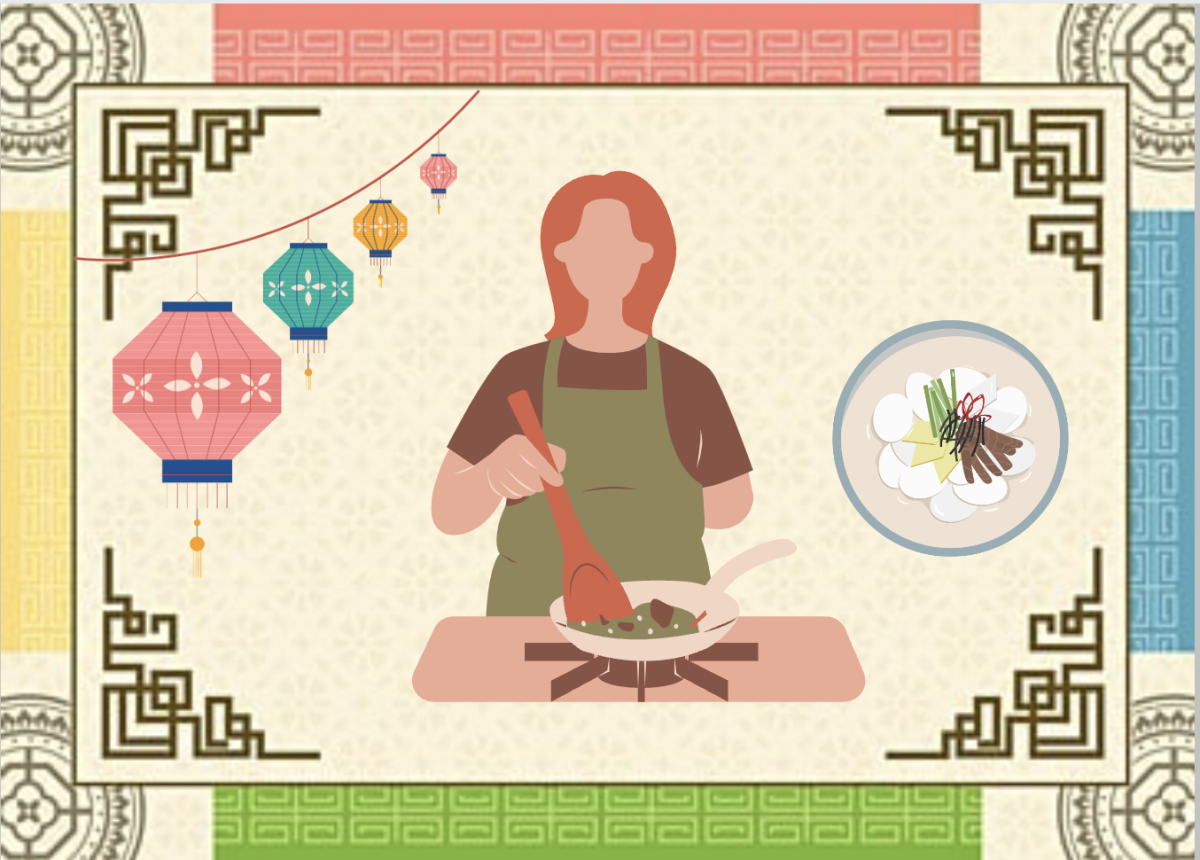For some people, Seollal—Korea’s Lunar New Year—is four days of rest; for others, it is a time to visit their family. However, for many mothers, it often means three days of continued labor.
These traditions, however, are old-fashioned and hurt the preservation of Seollal culture, which should focus on commemorating ancestors and strengthening family bonds. Even more, the traditional role of women during Seollal allows societal misogyny to perpetuate throughout Korean households. The current working traditions must change to either urge both men and women to participate in Seollal preparation or simply commemorate ancestors without the need for preparation.
In South Korea, many people celebrate the Lunar New Year, where workers and students have an extended weekend to attend large family gatherings. These Seollal family gatherings are paternal, meaning that families often meet at the home of the eldest paternal grandparent. At these gatherings, families hold several cultural traditions like memorial services for their ancestors, eating traditional Seollal food, and conversing with elders.
However, preparations for such ceremonies require the painstaking labor of several “Myunris” or daughters-in-law. Surrounded by paternal relatives, tradition calls for these daughters-in-law to care for all the family members. The responsibility of preparing food and cleaning after each meal rests heavily on Myunris. Following the Korean tradition, the daughters-in-law work while the men and daughters sit elsewhere, relaxing or watching TV.
Today, these traditions of Korean culture need to be updated. Compared to the beginning of these cultures, when women mainly handled domestic duties and were viewed as subservient to men, new social norms have taken place. Simultaneously more and more women are working. So would these women be willing to spend the rare holidays cooking and cleaning? The answer will most likely be no. As a result, it may damage relationships between in-laws and other family members, making occasional meetings also awkward.
While some may argue that Korean prestige and culture must be preserved, such unfair traditions for daughters-in-law and women, in general, can be seen as obsolete. Following Korea’s social and economic development, it must learn to disregard the biased systems of the past.
Moreover, Seollal should become a time for all family members, not just the elders and men, to enjoy seeing family, rather than a dreaded working period for Munuryis. If such cultures continue to be upheld, it may lead to the decline of these large family gatherings in general.
Given emerging concerns, families need to change their approach to Seollal. The issues above can be fixed in a few ways. One remedy is for both men and women to equally help put together the necessary foods and events for Seollal.
The Korean Lunar New Year revolves around Jaesa, the aforementioned ancestral practices, and the majority of the time, the in-laws and other women prepare foods like meat, seafood, tteok, fruits, and others. With both men and women preparing the food, this process can be faster and women would have less work. This solution can also be supported with different measures to raise awareness and change the social idea of who should be working and who shouldn’t over the Lunar holidays.
Another solution is to lessen the amount of work needed for this holiday in general. Currently, immense work goes into preparing food and other cultural items. By decreasing the workload, whether it be using food preparation services or buying from Banchan stores.
Although this approach may warrant more criticism as it goes against the Jaesa values of hand-preparing the food for their ancestors, for those open to this change may be a viable alternative.
Ultimately, there needs to be a balance between past traditions, formed in a highly patriarchal society, that promotes family bonding and respecting the boundaries of women, especially in-laws. Doing so can allow all members to embrace the values of Seollal.

